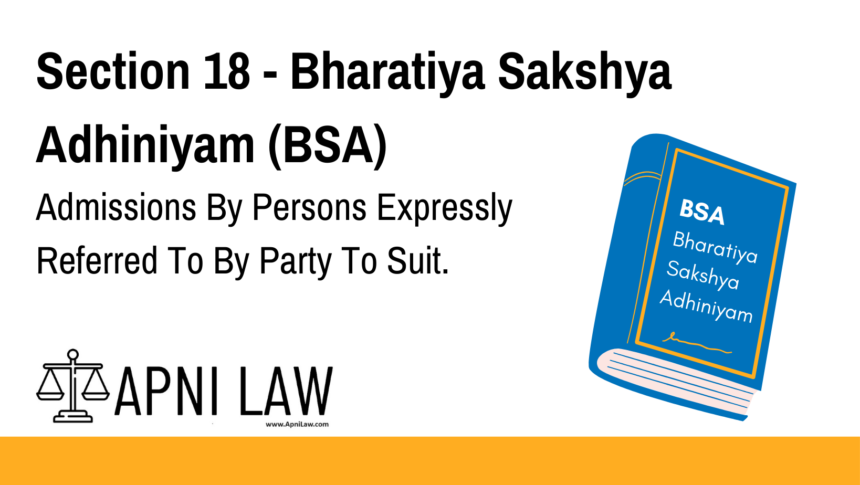Code
Statements made by persons to whom a party to the suit has expressly referred
for information in reference to a matter in dispute are admissions.
Illustration.
The question is, whether a horse sold by A to B is sound.
A says to B—”Go and ask C, C knows all about it”. C’s statement is an admission.
Explanation
This section applies when a party to the suit directs or refers another person to provide information about a matter in dispute. If the referred person makes a statement, it is considered an admission and can be used as evidence.
Contents
- The key here is the express referral by the party to the third person, and the relevance of the information being directly tied to the dispute.
- The person referred to essentially becomes a source of information whose statements are treated as part of the evidence in the case.
Illustration
The question is whether a horse sold by A to B is sound.
- A says to B, “Go and ask C, C knows all about it.”
C’s statement is considered an admission and is relevant to the case.
Key Concepts
- A party can refer someone else to provide information related to the dispute.
- The person to whom the party refers becomes an informant, and their statement is treated as an admission.
- The referral and the statement must relate directly to the subject of the dispute in the case








